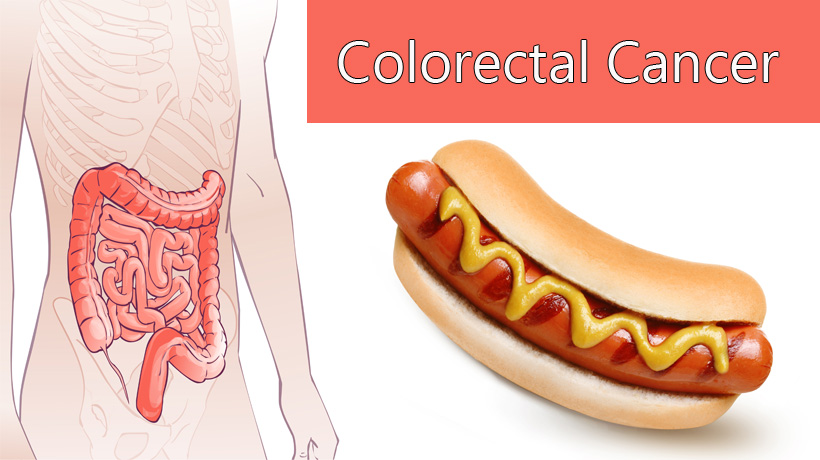New research suggests some foods, such as hot dogs and sodas, are associated with the risk of getting colorectal cancer. One of the teams that has researched this is Harvard Medical School, who explain the correlation between certain foods and colorectal cancer.
Research
A Harvard study published by JAMA Oncology suggests that diets promoting chronic inflammation are associated with colorectal cancer. Researchers analyzed the self-reported eating habits of more than 120,000 men and women, who filled out surveys every four years over a period of 26 years.
Participants in the study who ate the most foods that promoted inflammation, such as red and processed meats, sugary drinks, and refined grains, had a higher rate of getting colorectal cancer compared with people who ate the least of these foods.
For women, the risk was 22% higher. The people who ate pro-inflammatory diets also ate fewer vegetables and drank less tea, wine, and coffee. A growing number of studies have found that chronic inflammation is associated with cancer. And many other studies have shown links between pro-inflammatory diets and chronic diseases such as type 2 diabetes and heart disease.
Anything you can do to reduce the risk of chronic inflammation is a good idea. That could mean cutting out foods that are associated with inflammation, reducing stress, or getting more exercise.
Food to avoid
According to Medical News Today the main foods that people should avoid are:
- processed meats
- sugary drinks
- trans fats, found in fried foods
- white bread
- white pasta
- gluten
- soybean oil and vegetable oil
- processed snack foods, such as chips and crackers
- desserts, such as cookies, candy, and ice cream
- excess alcohol
- too many carbohydrates
Anti-inflammatory diet
WebMD explains foods you can incorporate in an ant-inflammatory diet:
Nuts: Nuts have a healthy kind of fat that helps stop inflammation, along withlive oil and avocados. Stick to just a handful of nuts a day; otherwise, the fat and calories can add up.
Fish: Salmon, tuna, and sardines all have omega-3 fatty acids, which fight inflammation.
Fruits and veggies: Research has shown that vitamin K-rich leafy greens like spinach and kale curb inflammation, as does broccoli and cabbage. And the substance that gives fruits like cherries, raspberries, and blackberries their color is a type of pigment that also helps fight inflammation.
Whole grains: Oatmeal, brown rice, whole-wheat bread, and other unrefined grains are high in fiber, and fiber also may help with inflammation.
Beans: Beans are high in fiber and have antioxidants that can help with inflammation.
Sources:
https://www.health.harvard.edu/cancer/harvard-researchers-inflammatory-diets-linked-to-colorectal-cancer
https://www.medicalnewstoday.com/articles/320233.php
https://www.webmd.com/diet/anti-inflammatory-diet-road-to-good-health#1



